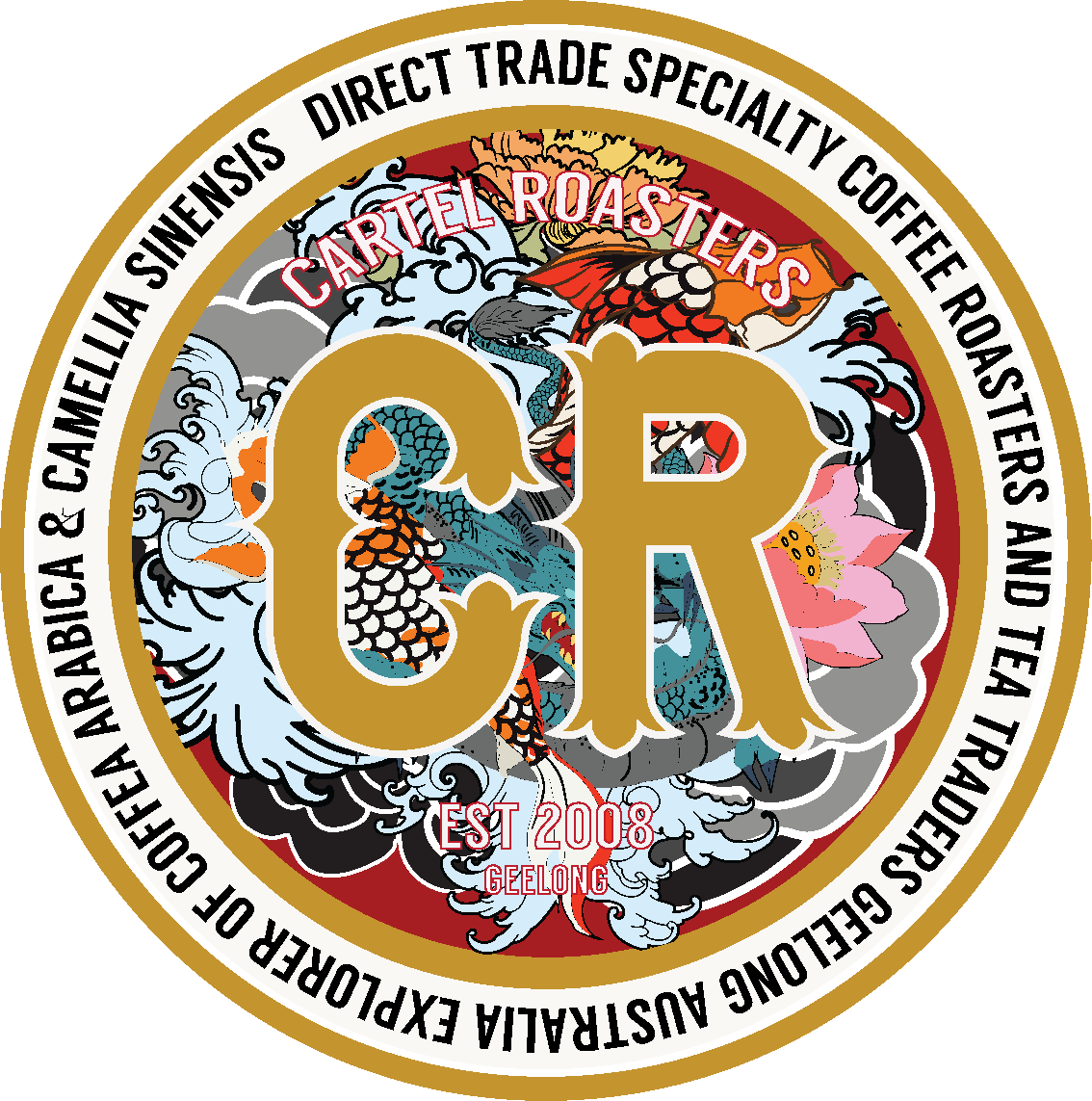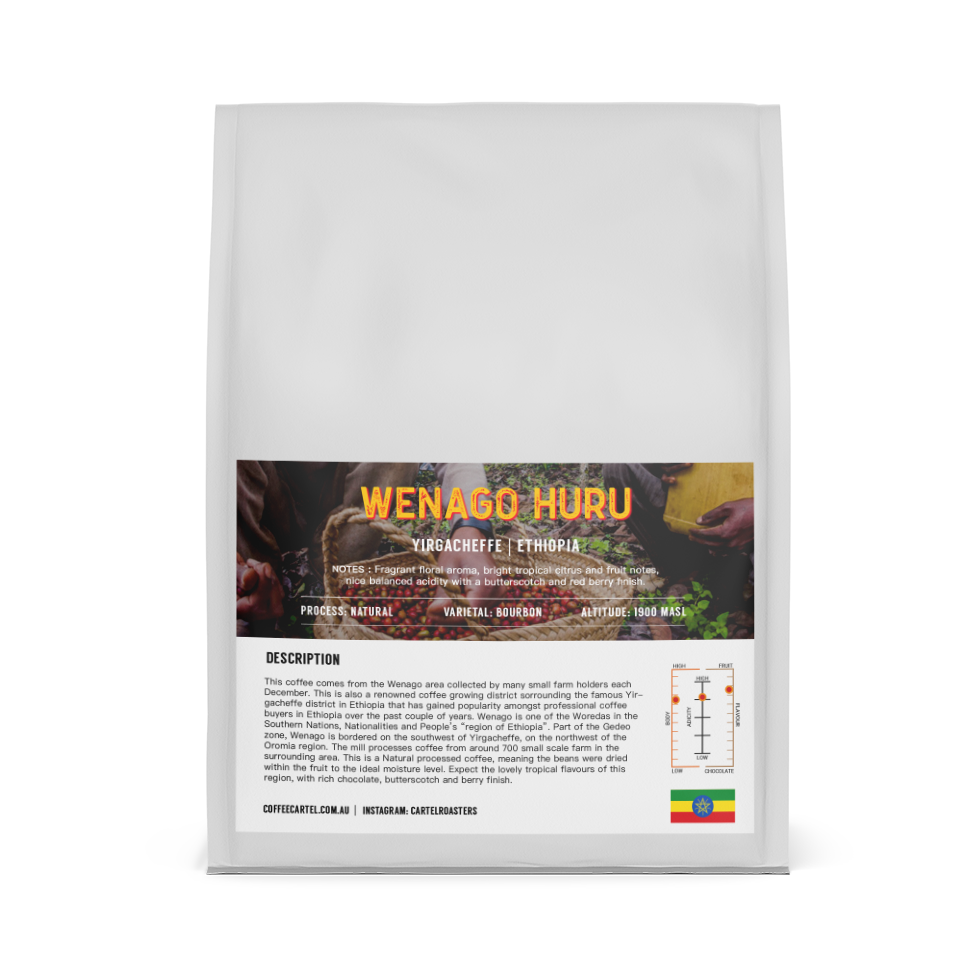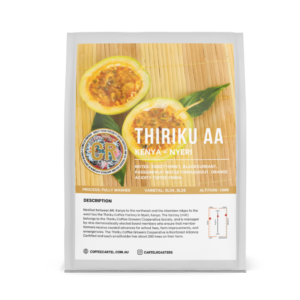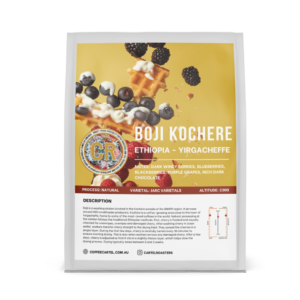About this coffee
- Altitude: 1900MASL
- Farmer: VARIOUS SMALL HOLDERS
- Score: 88.75
- COUNTRY: WENAGO YIRGACHEFFE
TASTING NOTES: FRAGRANT AROMA BRIGHT CITRUS TROPICAL FRUIT NICE BALANCED ACIDITY BUTTERSCOTCH RED BERRY & CHOCOLATE.
This coffee comes from the Wenago area collected by many small farm holders each December this is also a renowned coffee growing district surrounding the famous Yirgacheffe district in Ethiopia that has gained popularity amongst professional coffee buyers in Ethiopia over the past couple of years . Wenago is one of the woredas in the Southern Nations, Nationalities, and Peoples’ Region of Ethiopia. Part of the Gedeo Zone, Wenago is bordered on the southwest by Yirgachefe, on the northwest by the Oromia Region, on the northeast by Dila ZuriaThe mill processes coffee from around 700 small scale coffee farmers in the surrounding area. This is a “natural” or dry-processed coffee, meaning the beans were dried inside the fruit to the ideal moisture level. Expect the lovely flavours of this region of lovely tropical fruits chocolate citrus and butterscotch & coconut.
SOME HISTORY ON ETHIOPIA
Ethiopia earned 866 million USD exporting 221,000 tons of coffee during its last fiscal year .
According to Ethiopian Coffee & Tea Development and Marketing Authority, it has accomplished 92 per cent of its set goal to increase coffee exports. ” It is a very great achievement compared to nation’s previous years’ coffee export performance .”
Comparing to the coffee export volumes of 2015/16, there had been 11.5 Per cent growth in the coffee exports during the just concluded fiscal year 2016-17. Plus ,the foreign earning from coffee has raised by 20 percent due to the global coffee price hikes .
In a recent exclusive interview with The Ethiopian Herald, Market Development and Promotion Directorate Director Dassa Daniso said: ” Ethiopian Coffee has been imported to over 60 countries. But, this year, 57 countries have imported our coffee, particularly, 86 per cent ofthe total coffee exports destined for Germany, Saudi Arabia, Japan, USA, Belgium, Sudan, South Korea, among others.”
Coffee all started in Ethiopia in the 9th Century when the goat-herder Kaldi, noticed his goats acting more spritely after consuming cherries from a certain plant. Kaldi tried the cherries and noticed some of the familiar effects that we all feel when we enjoy some of the good drink in the morning. While this is a popular account of the ‘Discovery’ of coffee, there are other accounts of traders chewing cherries on trade routes from Ethiopia in order to increase energy. Ethiopia’s history is full of dramatic changes. Over the last four decades, the Ethiopian people have lived under three different forms of government, which include a semi-feudal imperial, a military rule with Marxist ideological orientation from 1974-1991, and a federal governance system from 1991 until the present. All of these periods have been accompanied by dissatisfaction, armed resistance and rebellions. Ethiopia has also confronted economic, social and environmental problems including a war with Eritrea from 1998-2000. This recent dispute with Eritrea as well other historical conflicts has provoked many damages, including lost lives, limited access to the land, emotional trauma, and extreme hunger.
Coffee still grows wild in Ethiopia’s mountain forests. Ethiopian farmers cultivate coffee in four different systems, which include forest coffee, semi-forest coffee, garden coffee and plantation coffee. About 98% of the coffee in Ethiopia is produced by peasants on small farms and it is the country’s most important export. Ethiopia is Africa’s third largest coffee producer. There are about 700,000 coffee smallholders in Ethiopia, of which 54 percent are in semi forest areas. Coffee has been part of their indigenous cultural traditions for more than 10 generations.





